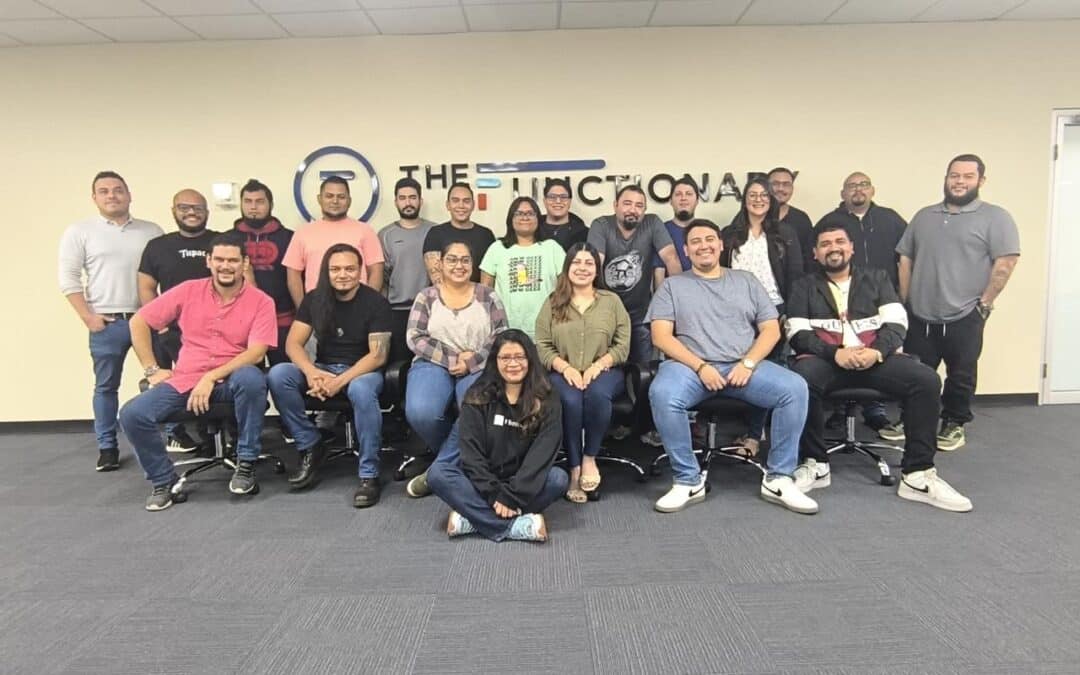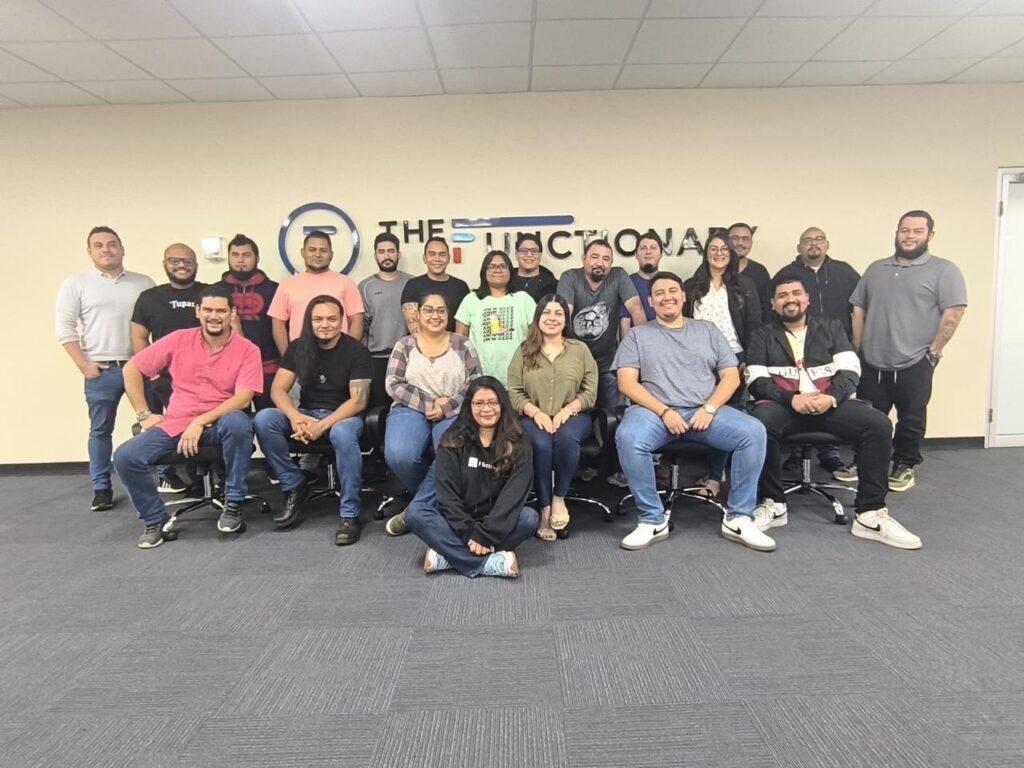Hire better and faster for less!
Download the white paper
Hiring in 2025
The new year started with challenges, all over the world. From companies like Amazon, requesting talent to go back to the office, to mid-market and start ups trying to stay lean and alive looking for creative solutions.
Finding the right talent to join your team is tough task. You need to match the hard skills that are necessary to do the job. You also want folks with a background pertinent to your industry and projects. On top of that, you’re looking for soft skills, a good personality that matches your company culture.
Am I on the right track?
You go to your recruiting team with a list of requirements, your must-haves, nice-to-haves and you’re ready to grow your team. You build a well crafted interviewing process, tailor a coding challenge, enough steps to ensure that when you make a hire, it’s the right one.
It’s time to talk numbers, how much is available on your budget?
Onshore, but off budget.
This is where it gets tricky, Finance is asking us to tighten the belt, lower our costs and be mindful of every dime spent. One option is to compromise years of experience, ideal background or cultural fit.
What are the consequences of that?
Compromising on Years of Experience (Seniority)
Less senior folks equal to longer learning curves. Ramp up will take longer. They’ll need more time before they start to add value. If you’re looking for a hands-on resource, this could burden you with teaching and coaching.
Compromising on Background (Industry experience)
Background experience that matches, its a touch of finesse or the hill you die on. If you’re building a payment tool from scratch, its a must. If you’re on a drag-and-drop coding environment, that’s optional. Let’s say you’re working with some data engineering, its ok if they come from retail and you’re a a consulting agency. If you’re in health or security, that know-how is especially a game changer or a deal breaker.
Compromising on Cultural Fit
Cultural fit may be the most neglected one out of the list. If they can do the job and they’re good enough, companies will make the hire. The problem is, what will that do to the organizational climate? Obviously, you care about your team mates. How will the new hire fit in? If they’re too far off, that can impact productivity and may even cause turn over.
Is it all bad news?
Certainly no.
Hiring People With Less Years of Experience (Seniority)
Hiring less seasoned professionals is a low-cost way to grow. Generally, younger folks don’t have the old habits they’re attached to. That means, they’re open to new ideas and processes. These folks can help you navigate and implement change.
Hiring People With a Different Background
New ideas! First that comes to mind is, they’ll have a fresh eyes and exposure to other problems and solutions. When you’re on a low risk environment, this can be a great experience. Definitely a fun addition to team who are willing to experiment (and ok with making mistakes).
Hiring People With a Different Cultural Fit
This could be a diversity and inclusion situation. There’s lots to explore if it is the case. Nevertheless, when I say cultural fit I mean personality, communication style, level of interaction, and collaboration. For lone wolves, working with social butterflies may be a drag. When recruiting, look for the piece that fits the puzzle you have.
What if I don’t want to compromise?
For projects that are challenging and require experience developers who can join the team ready to add value, you shouldn’t have to compromise. The perfect new employee should be as senior as you need them, have previous knowledge of your business and fit in just right with the staff they’ll work with.
I agree, your project shouldn’t take a hit because money is tight. Many executives fail to understand that engineering is a living and breathing organism and that your business can’t function without it.
Let me paint you a picture, you decide to compromise too much on engineering and now your core team can do some basic maintenance but nothing more. No one will see impact in the first few months, they’d be lying if they said differently. “Surprisingly” you’ll get more bugs, the application will get slower. There’s not manpower to release new features, so it gets harder to sell and stay competitive. Next step, your current clients walk away as you see the business shrink.
In a digital world, engineering (should) come first.
If your product/service is low quality, there’s nothing to market or to sell. Surely they can lie, but that’s not sustainable. The new world is remote, digital and online, your team needs to be top-notch to compete in this environment and thrive.
If you’re reading this, you know more than I do about the consequences of spaghetti code, GitHub Frankensteins and AI copied-and-pasted solutions. You also know, how valuable it is to work with ethical developers who write proper documentation and have a shared knowledge base.
Skilled talent that you can afford
There’s a place where you can find talent that matches your job description, your hard requirements, background experience, cultural fit AND still keep you on the good side with your CFO.
Welcome to Latin America, a giant talent pool, college educated, bilingual folks whose salary expectations 40-60% less than US-based ones. The reason is simple, the exchange rate combined with local cost of living create this sweet spot for our business model.
The talent is making more money than the local market is willing to pay, they’re earning in dollars, protected from inflation and economic conjectures.
Your business is onboarding someone who feels valued, well paid and happy to join your team and be a part of a Global initiative.
It is a true win-win scenario.
Ok, but why do I need the middle man?
Hiring abroad is an amazing strategy but it includes finesse.
- Attracting: How to engage the talent for your opportunity?
- Technical Screening: is your team prepared to select tech talent? In all frameworks you need?
- Legal Shield: how do you protect yourself from local labor law issues?
- Compliance: how to make sure you don’t get sued?
- Fraud: fake candidates are real (pun intended), do you have the tools and skills to protect your business?
- Logistics: do you have the means to efficiently ship and retrieve equipment?
- International Payment: how easy it is for your accounting team to manage international wires?
- Retention: how to keep remote workers happy, productive and avoid turnover?
If you have this all figured out and mastered, you’re ready to navigate international recruiting.
“Ain’t nobody got time for that!”
Did all of that sound overwhelming? Nod with your head or blink twice.
This is not an organic part of your core business, and it shouldn’t be.
The best practice nowadays is to find a partner with a track record of success. An agency you can trust to look after your best interest while still focusing on finding and retaining top talent.
You should find a partner who works with transparency, allows you to interview folks before signing an SOW, who can offer you references and show you’re they’re in it for the long haul.
The Functionary, the best option for your next hire!
The Functionary has mastered the art of international recruiting for software engineers, IT folks and support roles. We are bigger and bulkier than every next guy you’ll see around. Although we have hundreds of people working remotely from 26 different countries, we have doors you can knock on.
If you’re looking for a solid partner, you can check any of our 9 physical locations where we have space, desks, chairs, laptops, HR structure, security and all the important stuff to keep our agents happy.
We have successfully staffed over a thousand resources worldwide, our tenure is +2 years (some folks have been with us for 7 years!!), we have technical recruiters versed to screen across languages, frameworks and any particularities needed to meet your expectations!
Click here to talk to our specialist!
Or reach us at sales@thefunctionary.com / +1 (347) 973 4696.





